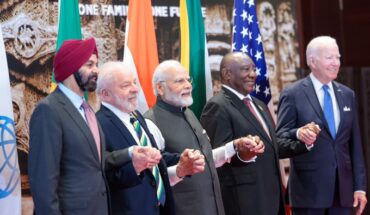India’s negative vote at the UN Security Council (UNSC) on a draft resolution on climate change is a reflection of its long-held opposition to expanding the UNSC’s mandate into areas that are already being dealt with by other multinational fora. The resolution, piloted by Ireland and Niger and which had the support of a majority of the UNSC members, was voted down by India and Russia — it has veto powers — while China abstained. Their position is that the UNSC’s primary responsibility is “maintenance of international peace and security” and climate change-related issues are outside its ambit. But the supporters of the resolution argue that the climate is creating security risks in the world, which will exacerbate in the future with water shortage, migration and a destruction of livelihoods. While the urgency to take action to tackle climate change is appreciated, the attempt to securitise the climate agenda could have unintended consequences. Bringing the issue under the UNSC will also give more powers to the world’s industrialised countries, which hold a veto power, to decide on future action on climate-related security issues. Each nation faces different challenges in transitioning into a greener economy. As India’s Permanent Representative at the UN T.S. Tirumurti pointed out, the developed countries, all big polluters, have not met the promises they made with regard to climate action. The least developed and developing countries should be encouraged to keep the promises they made with financial assistance. This needs to be a collective process and the best way is through the UNFCCC, where decisions made are by consensus. The UNFCCC should not only make sure that the promises made by member countries, especially the powerful ones, in previous conferences are kept but also expand the scope of discussions to include climate-related security issues.
Time to focus on climate-related security issues
|
December 18, 2021 |





